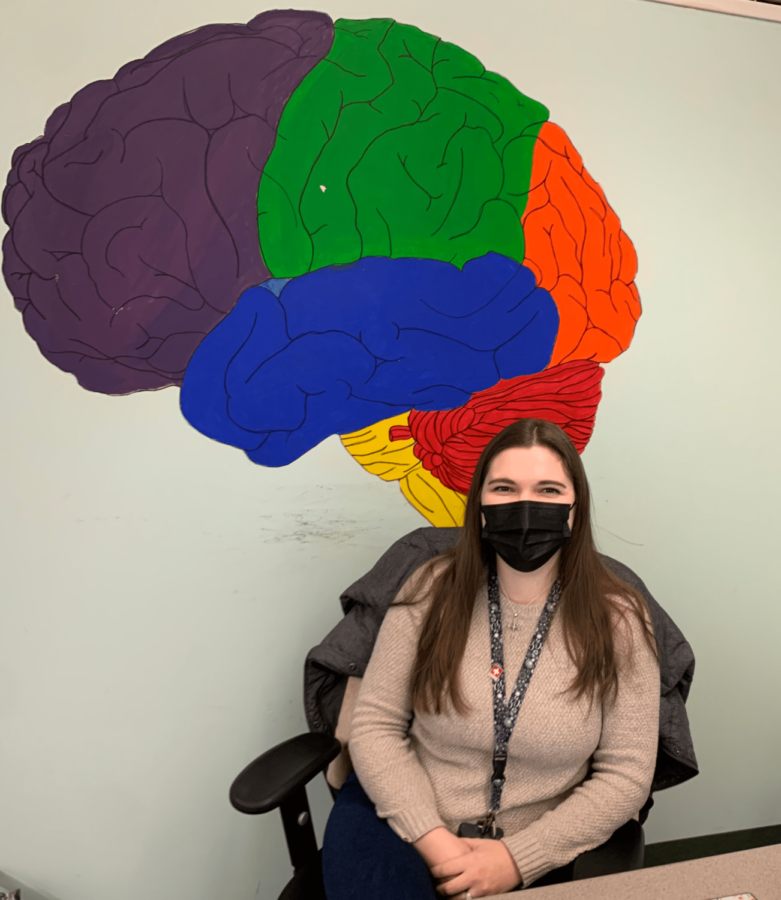What Goes On In A Teenagers Mind and Why Do They Get So Unfocused?
March 1, 2022
I’m sitting in my Pre Calc class, at 7:45 in the morning, not thinking about what I should be: math. Instead of focusing on trigonometric equations, my mind is racing… Maybe I should google some prom dresses to see what I like. Oh no, I didn’t finish my homework for my next period class. I can’t forget, after school, I have to go to CVS and get my favorite mascara. On and on and on…. Looking around the room, I realize that I am not alone. It is clear from the empty gaze in their eyes that teens have a hard time focusing.
Students have a tough time paying attention and staying focused in class, whether they’re looking up at the ceiling, around the room, checking their phones, or thinking about things they’re going to do later. It’s not hard to get off topic. If you’re ever in this moment, Ms. Ryan, the Ipswich High School Adjustment Counselor, says to ask yourself, “Could I get up and sharpen my pencil? Could I get up and get some water or go to the bathroom?” The key thing is “you don’t want to be out of the classroom” for a long period of time, says Ms. Ryan. Taking a mental break is healthy-especially during our 70 minute periods.
Mia Corcoran, a student at Ipswich High School, considers herself a focused learner unless she is with friends. Mia believes that she can stay focused in class unless surrounded by friends. Friends can be distracting.
First and foremost, we shall take a step back to learn and analyze different parts of the brain that make you stay focused. According to Ms. Hayoz, a Psychology teacher at Ipswich High School, “Your prefrontal, frontal cortex, which is the front of your brain, is the part that makes you stay focused.” Those parts of the brain control judgements, memories, perceptions and focusing. However when it comes to physical alertness, which is your RAS (Reticular Activating System) located in the brain stem, it is what physically wakes you up and alerts you. When it comes to being focused, it’s located in the front part of the brain.
Just like any other disturbances, there are endless medical conditions that impact the way you focus. Some include anxiety, depression, bipolar disorder, insomnia, etc. Even basic senses will impact focusness, like if you’re cold or hungry. Ms. Hayoz, also stated that “It’s amazing when our brains are able to focus, because of how much information and how many distractions we are constantly filtering out all the time.”
Looking at it from a different perspective, when thinking about “being focused” we also have to think about what leads people to lose track of focusness. That’s when distractions come into play. They’re a huge way to be unfocused, and could also impact your body. The more distracted you are, the more taxing it is on your cognitive abilities. An example would be when you’re multitasking, which is impossible for anyone to be good at. Your brain truly cannot focus on many things equally. With that being said, the more you equally divide your focus with all these little distractions, whether it’s something as simple as listening to music, or being on your phone, you are cognitively taxing your brain, which makes it difficult to focus, and eventually wears yourself out mentally or physically.
The rule of thumb is well known to be that teen attention span lasts up to be equivalent to your age, so if you’re the age of 15, your attention span is about 15 minutes long. This is why administrators recommend for teachers to break up class activities throughout the lessons due to students not being able to maintain their focus for long periods of time. An example of this would be students getting distracted by their phones, whether it’s changing music, snapchatting, “and especially with the chromebooks now, they may look engaged, but then you don’t know what tabs they necessarily have opened on the backend… in my AP Psychology class, you have your notes open trying to follow along but then you’ve got shopping for prom dresses or other things, and those tabs are representative of what is also going on in your head,” says Ms. Hayoz.
Now I’m in my last period of the day, and still haven’t learned anything. All my outside thoughts distracted me from learning and paying attention in class. Even though this has been a reoccurring problem for me, some advice I got from Ms. Ryan was that “taking a deep breath and putting some kind of reminder on your desk that is like ‘pause when you find yourself distracted’ can help you regather your thoughts.” But I also know that I could take a few minutes to regather myself and my thoughts by taking a mask break, then come back to class and be ready to participate. Being honest with your teachers and yourself is essential for you to regain focusness. ![]()


Annonymous • Mar 28, 2022 at 9:04 pm
This is a very informative article! I learned a lot reading this.